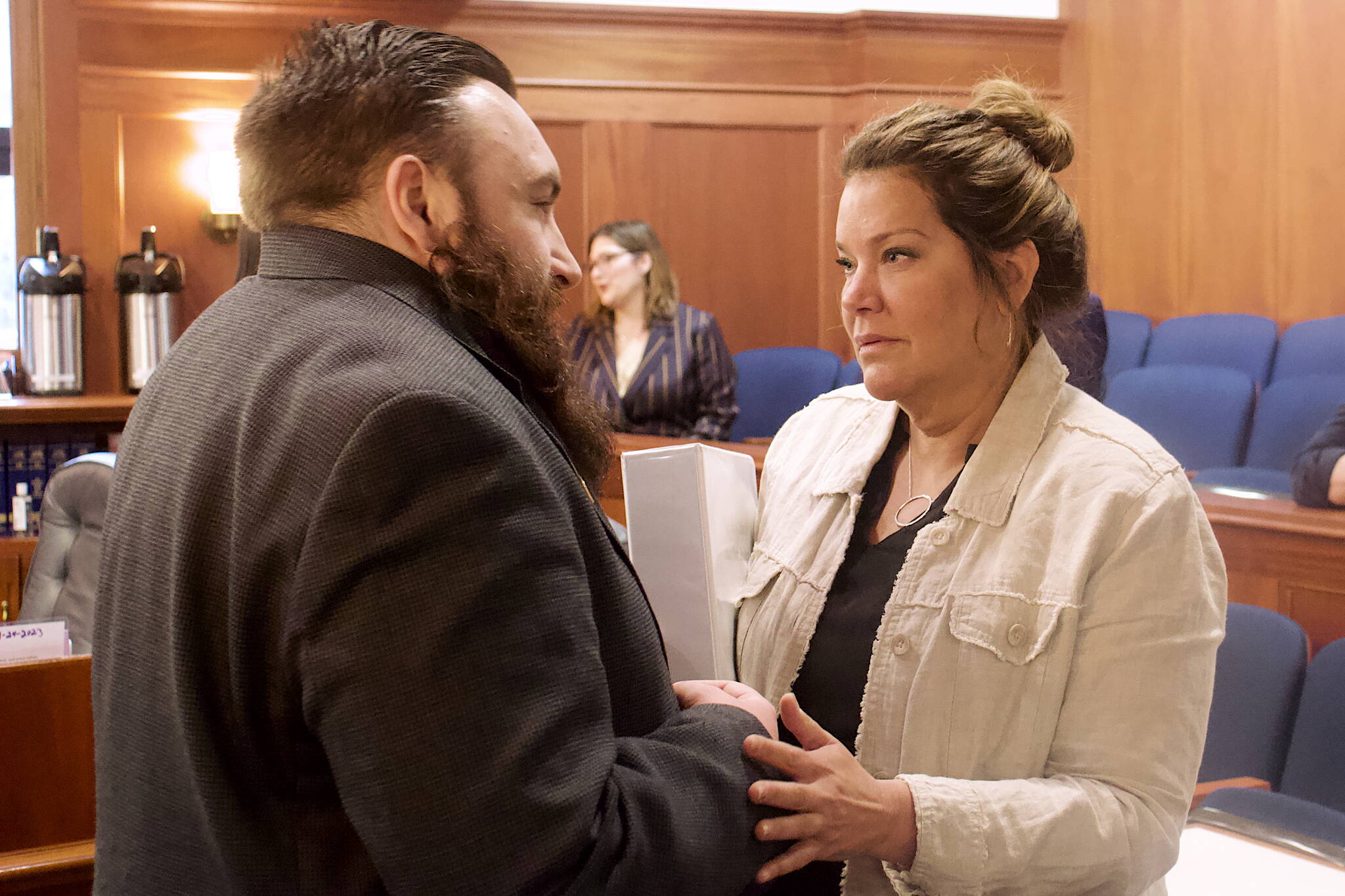This story has been updated to note the bill will next be heard by the House Judiciary Committee on Monday.
The most controversial bill of this year’s legislative session, which includes requiring parental permission for their children to participate in sex education classes, was expanded to require such permission for the entire curriculum before it advanced out of its first committee Wednesday by a 4-3 vote.
Lawmakers did tone down one contentious provision of the bill that originally required students to use the bathrooms and locker rooms of their birth gender, instead requiring single-occupant facilities “or other safety and privacy protocols.” The bill also requires educators to notify parents of any change in a student’s mental/physical health or desire to be addressed by a different name/gender, but exceptions are allowed for nicknames provided by parents for situations that put the student at risk of harm.
The biggest change made to House Bill 105 by the House Education Committee on Wednesday requires parents to get at least two weeks’ advance notice of “any activity, class, or program,” and requires written permission of the parent for a child to participate. It also allows parents to withdraw their children from “from an activity, class, program, or standards-based assessment or test required by the state for a religious holiday, as defined by the parent.”
The bill sponsored by Gov. Mike Dunleavy saw several hundred residents offer spoken testimony during two public meetings that lasted 11 hours, more than 80% voicing opposition. More than a thousand pages of written testimony were also submitted, also mostly opposing the bill. Most of the opposition focused on LGBTQ+ issues such as educators being forced to “out” students to parents.
The change to expand the bill to cover all curriculum was introduced by Rep. Justin Ruffridge, a Soldotna Republican who co-chairs the education committee. He said it was based on public comments expressing the concern the bill was too focused on sex and gender issues, and “I think it’s a good way to open the communication and dialogue between parents and schools.”
Ruffridge said he doesn’t expect a large number of parental objections where teachers are forced to offer individualized lesson plans to a significant percentage of students. But he acknowledged it may result in objections to subjects some parents consider controversial such as evolution.
“I think that’s a question that parents have been having for a long time,” he said. “I think this gives parents an opportunity to know when it’s being taught, what grade it’s being taught in, to have a conversation at home and maybe to opt out. But at least it leaves it to the parent.”
Rep. Rebecca Himschoot, a Sitka independent, said just before the committee voted on the bill that it should be possible to work with a handful of parents who feel they don’t have proper communication with their school and a few teachers who’ve had communications issues “without passing a mandate that feels threatening to some of the most vulnerable Alaskans.”
“I think that this bill is using a butcher knife where scalpel would do,” she said. “I think that what this bill does is it takes our focus away from what we should be doing. We should be focusing on supporting our schools in a predictable and stable way. We should be improving reading outcomes. We should be recruiting and retaining the best teachers we can.”
Also approved at the last minute was an amendment stating an unspecified amount of funding will be provided to schools to fulfil requirements of “parental involvement initiatives,” which was introduced by Himschoot, who expressed concerns about already cash-strapped districts being force to take on additional unfunded costs. She said a preliminary unofficial estimate of the cost is about $6 million a year.
“Anytime we add a mandate to schools I think we also have an obligation to help them meet the provisions of the mandate with some additional funding,” she said.
The amendment passed by a 4-3 vote with Rep. Mike Prax , a North Pole Republican, voting with three minority members.
The bill is next scheduled to be heard by the House Judiciary Committee at 1 p.m. Monday. But it appears the proposal has little change of becoming law since leaders with the bipartisan Senate majority say there isn’t enough support in that chamber to pass the bill.
• Contact reporter Mark Sabbatini at mark.sabbatini@juneauempire.com

